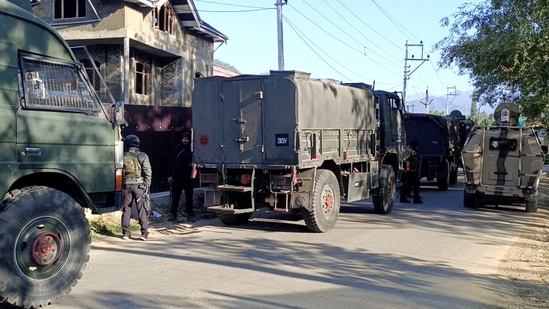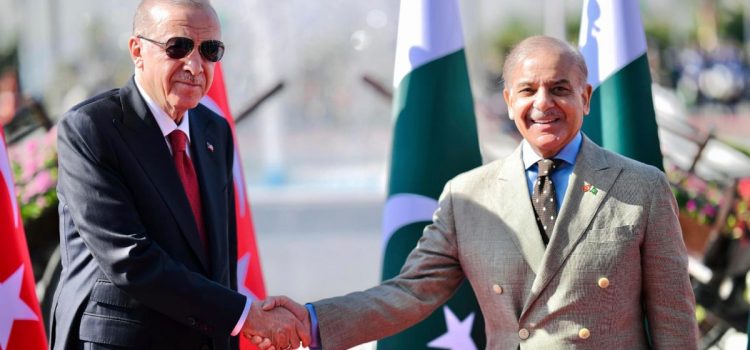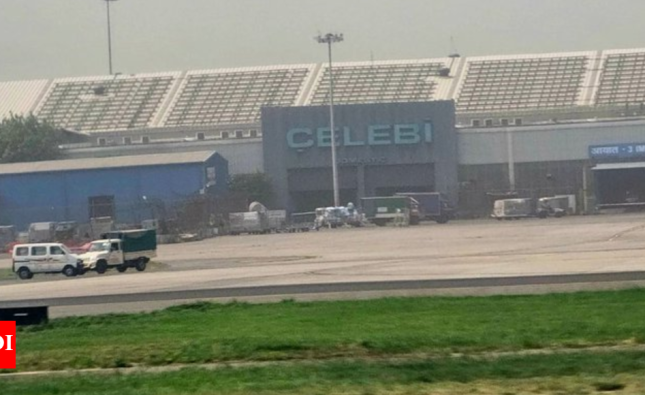
Last Updated:
Boycott Turkey initiative could hurt Ankara’s economy, which is already grappling high inflation, currency depreciation, debt and policy paralysis
There has been a clarion call to boycott travel to Turkey and Azerbaijan as Indians question the countries’ pro-Pakistan stand. (AP Image)
The ‘Boycott Turkey’ initiative by India could leave Ankara’s already flagging economy in tatters with serious impact could be seen across defence, tourism, trade and investment sectors.
Since the conflict began between India and Pakistan on May 7 in the aftermath of the Pahalgan terrorist attack, Turkey has been lambasted for its role in the combat, with reports suggesting that it provided arms support to Islamabad.
Therefore, there has been a clarion call to boycott travel to Turkey and Azerbaijan as Indians question the countries’ pro-Pakistan stand.
What Is The State Of Economic Affairs In Turkey?
Turkey’s economic model dependent on high-interest government bonds to stabilise the lira is crumbling. The Turkish lira (TRY) has been in freefall, and the government’s efforts to maintain stability are proving futile.
As of March 2025, Turkey’s gross foreign exchange reserves stand at around $85 billion, net reserves, once debts and swap agreements are accounted for, hover near zero or even negative, and actual liquid reserves available for intervention may be only $20-$40 billion.
What Could Drain Turkey’s Reserves?
Several factors could push Turkey’s economy into a collapse.
Conversion of Lira To Dollars: If 30 million citizens exchange an average of $500 each, the central bank would lose $15 billion in reserves almost instantly. The lira would face an unprecedented collapse.
Bank Withdrawals: The Turkish banking system holds about $450 billion in total deposits. If just 5% of depositors panic and withdraw their money, that’s $22.5 billion gone in days, slashing more than half of available reserves.
Tax Payment Boycotts: Türkiye’s government is dependent on $150 billion in annual tax revenue. If 20% of taxpayers refuse to pay, the government would face a $2.5 billion monthly deficit, pushing the economy further into chaos.
Energy And Transportation Disruption: With $5 billion in monthly energy imports, even a 20% disruption could add an extra $1 billion loss per month, further depleting reserves, as per TheFeed.
Labour Shutdowns: A one-week nationwide strike would cost the economy $4-5 billion. If prolonged, the financial damage could be irreversible. If these factors collide simultaneously, Turkey could lose up to $40 billion in reserves within a single month—effectively erasing its financial safety net.
How India’s ‘Boycott Turkey’ Will Exacerbate Downfall
Impact On Tourism: Turkey has been one of the most favoured travel destinations for Indians. However, due to Turkey’s stance in the Indo-Pak conflict, major Indian travel agencies like Ixigo, EaseMyTrip, and Cox & Kings have suspended bookings to Turkey. Ixigo has suspended all flight and hotel bookings to Turkey, China and Azerbaijan. “Respecting the sentiments shared by all Indians at this time, we have suspended all flight and hotel bookings for Turkey, Azerbaijan, and China. Our commitment is to act responsibly and in alignment with our country’s broader interests, while prioritising the trust, safety, and interests of Indian travellers. Blood and bookings won’t flow together,” Aloke Bajpai, CEO of Ixigo, told ThePrint. Additionally, the Travel Agents Association of India (TAAI) has urged its members to halt the promotion and sale of tour packages to Turkey. This collective action is likely to lead to a significant decline in Indian tourist arrivals, adversely affecting Turkey’s tourism revenue. In 2024, Turkey earned $61.1 billion from tourism, an 8.3% increase compared to the previous year. This revenue was driven by an increase in visitor numbers, with Turkey welcoming 62.2 million visitors, a 9% rise from 2023. The average spend per visitor was $972 in 2024. According to Turkey’s Ministry of Culture and Tourism, 3,30,000 Indians travelled to the country last year, compared to 119,503 arrivals in 2014.
Trade Ties: Bilateral trade between India and Turkey stood at around $13.81 billion during 2022-23. India’s imports from Turkey included petroleum products, nuclear reactors and parts, and various other commodities. The boycott movement has already led to actions such as traders in Pune boycotting Turkish apples. If the boycott extends to other sectors, it could disrupt this substantial trade relationship, leading to economic losses for Turkish exporters.
Investment: Turkish investments in India amount to $210.47 million, with Indian investments in Turkey at around $126 million. The current tensions may deter future investments and collaborations between the two nations, affecting long-term economic and diplomatic relations.
Defence Sector Losses: India’s cancellation of a $2.3 billion shipbuilding contract with Turkey’s last year TAIS consortium marks a substantial financial setback for Turkey’s defence industry. The deal involved the construction of five Fleet Support Ships for the Indian Navy, with Turkish firms providing design and engineering support.
India’s Boycott Turkey Call
Besides tourism industry leaders and social media users, Indian politicians have also slammed Turkey for supplying drones to Pakistan.
Shiv Sena (UBT) leader and Rajya Sabha MP Priyanka Chaturvedi rebuked a purported statement by Ankara’s tourism department, which urged Indians not to “postpone or cancel any trips” to Turkey. Sharing the statement, she wrote on X, “No Türkiye, Indians won’t come spending money on tourism in a country that uses the same to arm Pakistan. Look for your tourists elsewhere, our money ain’t blood money.”
Congress MLA from Himachal Pradesh, Kuldeep Singh Rathore, has called for an immediate ban on Turkish imports. Accusing Turkey of “diplomatic betrayal”, he reminded Ankara of India’s assistance during the 2023 earthquake under ‘Operation Dost.’ “I strongly demand that India immediately ban the import of apples and other goods from Turkey. Our countrymen must also boycott Turkish products and tourism. We cannot allow any nation to enjoy our goodwill while arming those who threaten our national security,” Rathore reportedly said.
An ANI report said Pune traders have started boycotting apples imported from Turkey. “We have decided to stop purchasing apples from Turkey and are instead opting for produce from Himachal, Uttarakhand, Iran, and other regions,” Suyog Zende, an apple merchant at the Agricultural Produce Market Committee (APMC) market in Pune, told the news agency. “This decision aligns with our patriotic duty and support for the nation.”
Meanwhile, Eknath Shinde-led Shiv Sena has demanded that the management of Chhatrapati Shivaji Maharaj International Airport in Mumbai cancel the contract with the Turkish company handling the ground services. “Turkey is helping Pakistan. How can we allow their companies to earn here? They are earning here and helping Pakistan. This will not happen,” Shiv Sena MLA Murji Patel, who led the protest, said, as per Deccan Herald.
- First Published:










